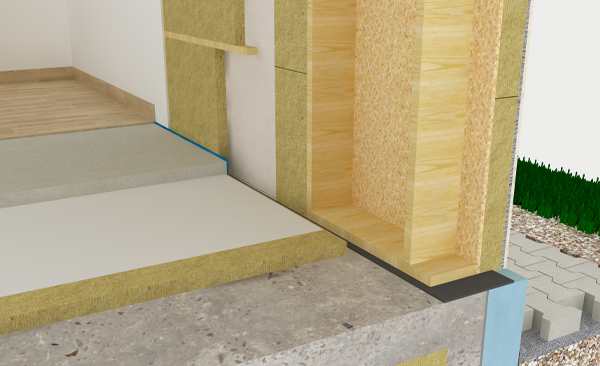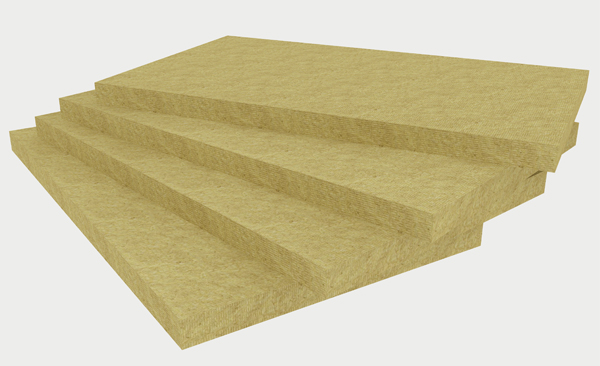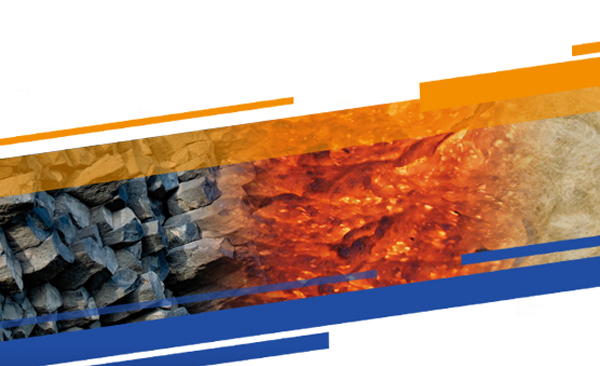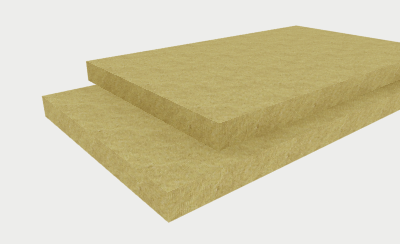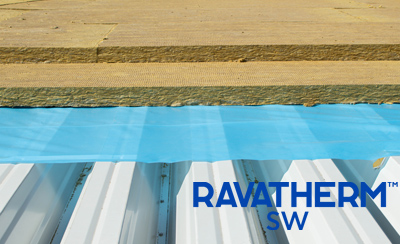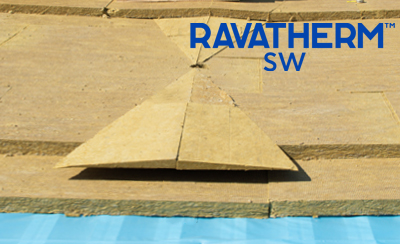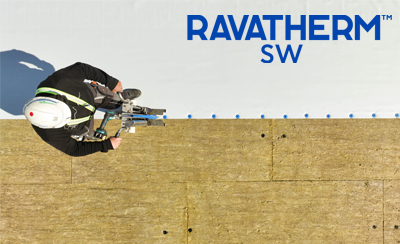Stonewool thermal insulation in our everyday life
The RAVATHERM SW stonewool thermal insulation contributes to ensuring the appropriate comfort during the whole year. Thanks to the excellent properties of the mineral wool material, it can be widely used in all types of buildings.
Today, the importance of thermal insulation cannot be overemphasized. Since 40% of global carbon dioxide emissions come from our buildings, thermal insulation should be given priority during both a building renovation and new construction.
Why is RAVATHERM SW stonewool thermal insulation good?
- is an investment that pays off quickly
- significantly reduces energy costs in the long term
- is completely fireproof
- has good vapour permeability
- has excellent soundproofing ability
How is it made?
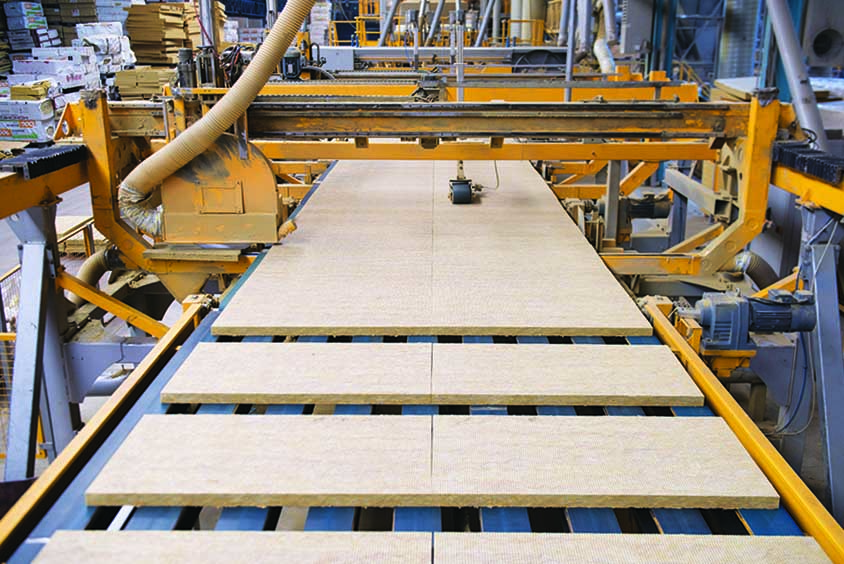
RAVATHERM SW stonewool thermal insulation board is therefore largely composed of basalt, however there equally important elements, the heat-curing resin and the hydrophobizing material. Thanks to which the thermal insulation material will have water-repellent properties throughout.
Mineral wool thermal insulation is not harmful to health, the fibers that make it up do not cause damage even if inhaled, as they completely decompose in a living organism. The product is recyclable, does not create hazardous waste, and does not contain environmentally harmful substances.
RAVATHERM SW mineral wool thermal insulation
RAVATHERM SW thermal insulation is stone wool manufactured using modern technology, which meets all quality and performance requirements for products, and the production process is in accordance with our environmentally conscious thinking.
What are the advantages of stonewool?
In an average family house, office building, or even an industrial hall, both heating and cooling (e.g. air conditioning) use a lot of energy. The more efficient the thermal insulation of the facade, slab and plinth of the building, as well as the greater the thickness of the thermal insulation, the more efficient a thermal envelope we can create on our house, with which we can reduce our energy costs by half or even a third.
In addition to its excellent thermal insulation properties, stonewool also has several beneficial properties derived from its material.
It is durable, does not shrink during its lifetime, and thanks to its heat resistance, it can be installed even in contact with surfaces that heat up to extremely high temperatures.
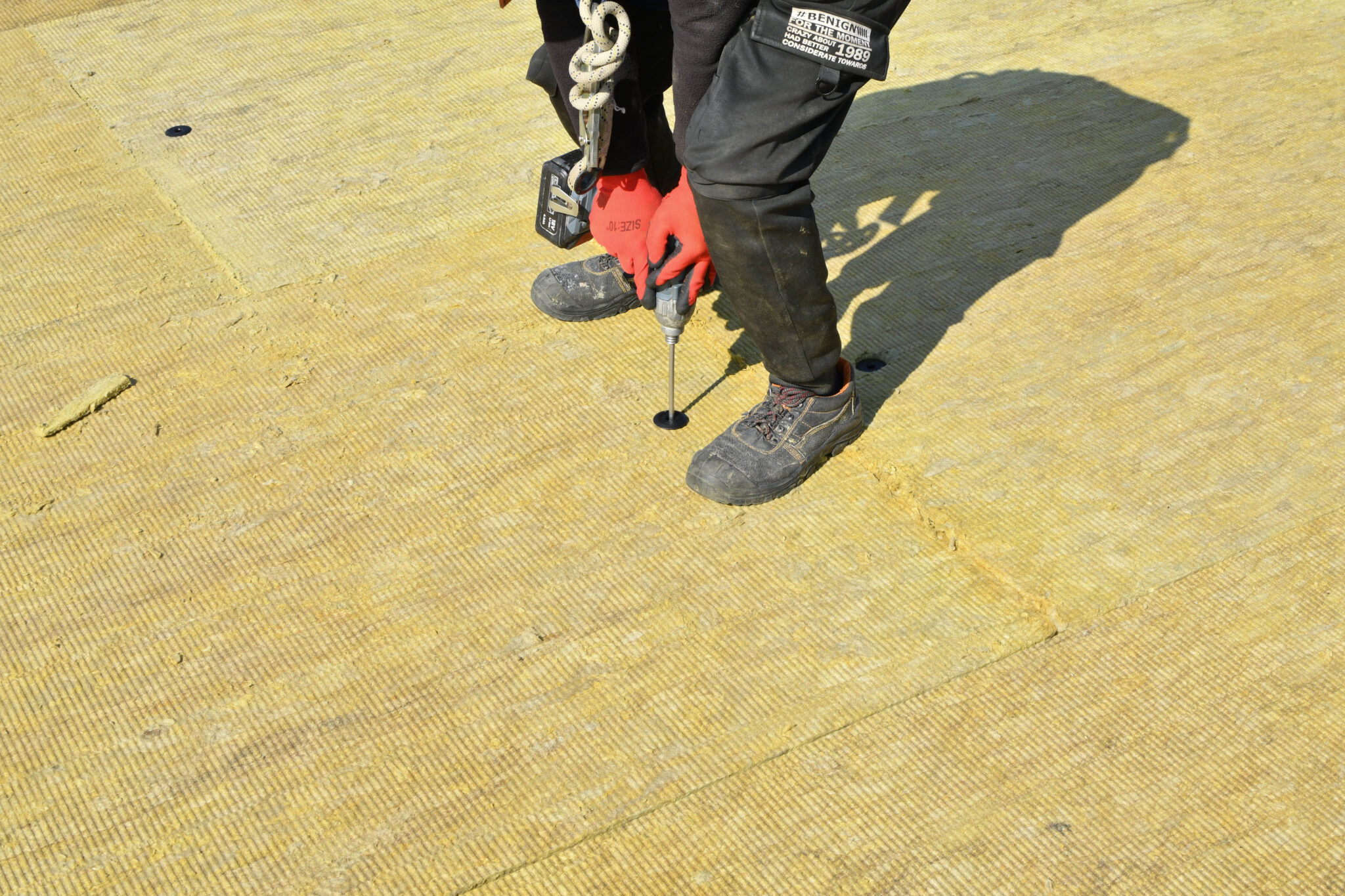
In terms of fire protection, it can be used in special places where only A1 fire protection class thermal insulation can be installed. Such can be buildings with high risk requirements or special functions, as well as industrial halls and facilities used for the storage of large areas or special materials.
Where can RAVATHERM SW be used?
Stonewool thermal insulation can be used in a wide range of layers, thanks to its special properties. This includes, among others, thermal insulation of lightweight flat roofs, thermal insulation of plastered and ventilated facades, high-roof insulation and attic floor insulation installed between the rafters, as well as sound insulation installed in partition walls and suspended ceilings.
Flat roof of industrial halls
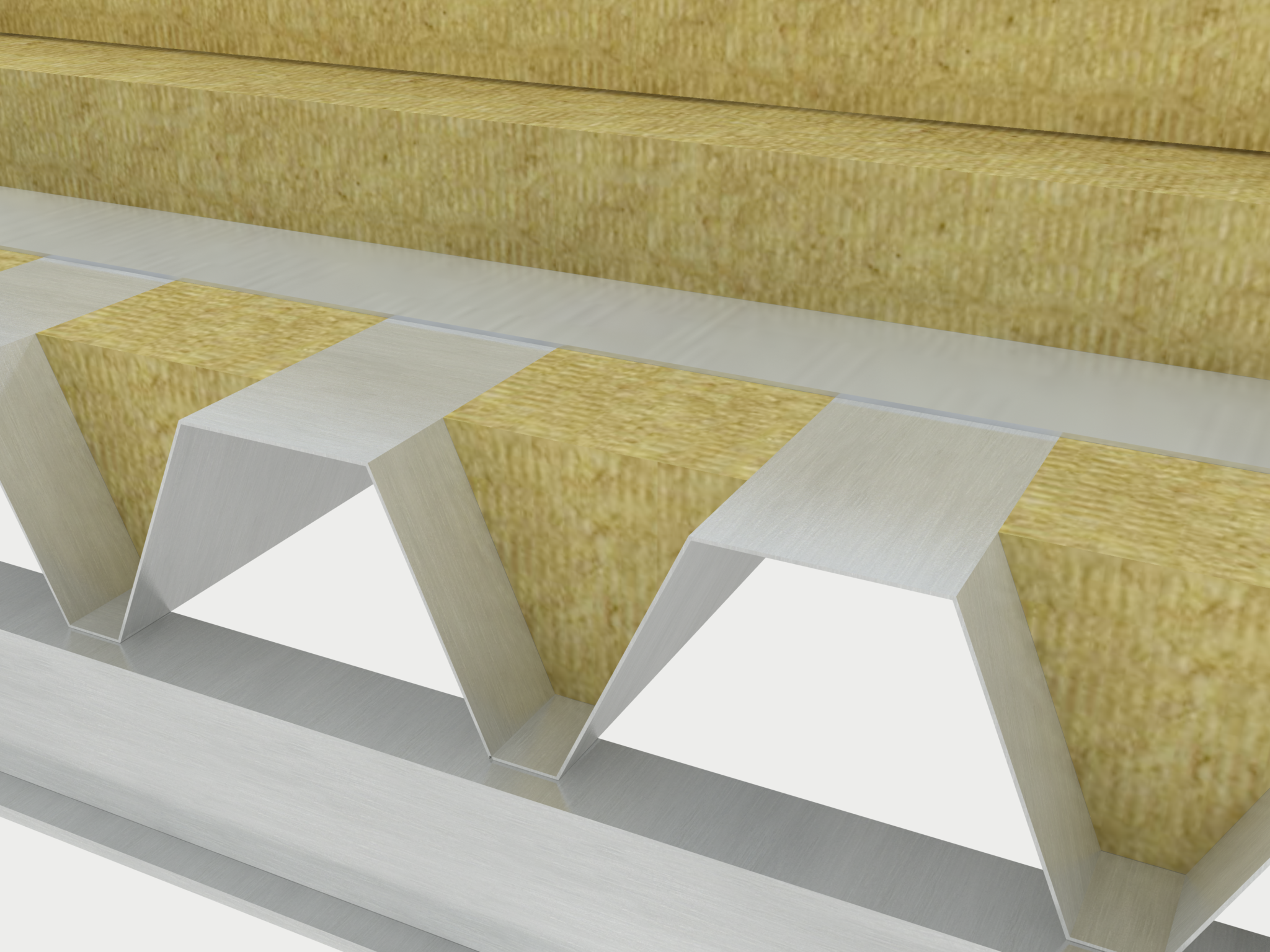
One of its extremely common areas of application is the thermal insulation of the lightweight (usually trapezoidal slab) roof structure of industrial halls. A significant amount of heat energy can escape through the large roof surface, so the issue of flat roof insulation of industrial halls is particularly important for thermal protection.
The thermal insulation of lightweight flat roofs with RAVATHERM SW is particularly advantageous due to the material’s excellent sound and heat insulation properties and fire resistance. In addition to these, the non-combustible stone wool is durable, holds its size and shape, and has good moisture permeability. The high-density stone wool boards placed on the light-weigth flat roof structure form a separate heat storage mass.
Slope formation is also an important element of the lightweight flat roofs of industrial buildings. The path of the water must be ensured by creating a slope of a few percent towards the roof gutters, which is made using prefabricated slope elements made of the mineral wool itself.
ETICS – External thermail insulation composite system
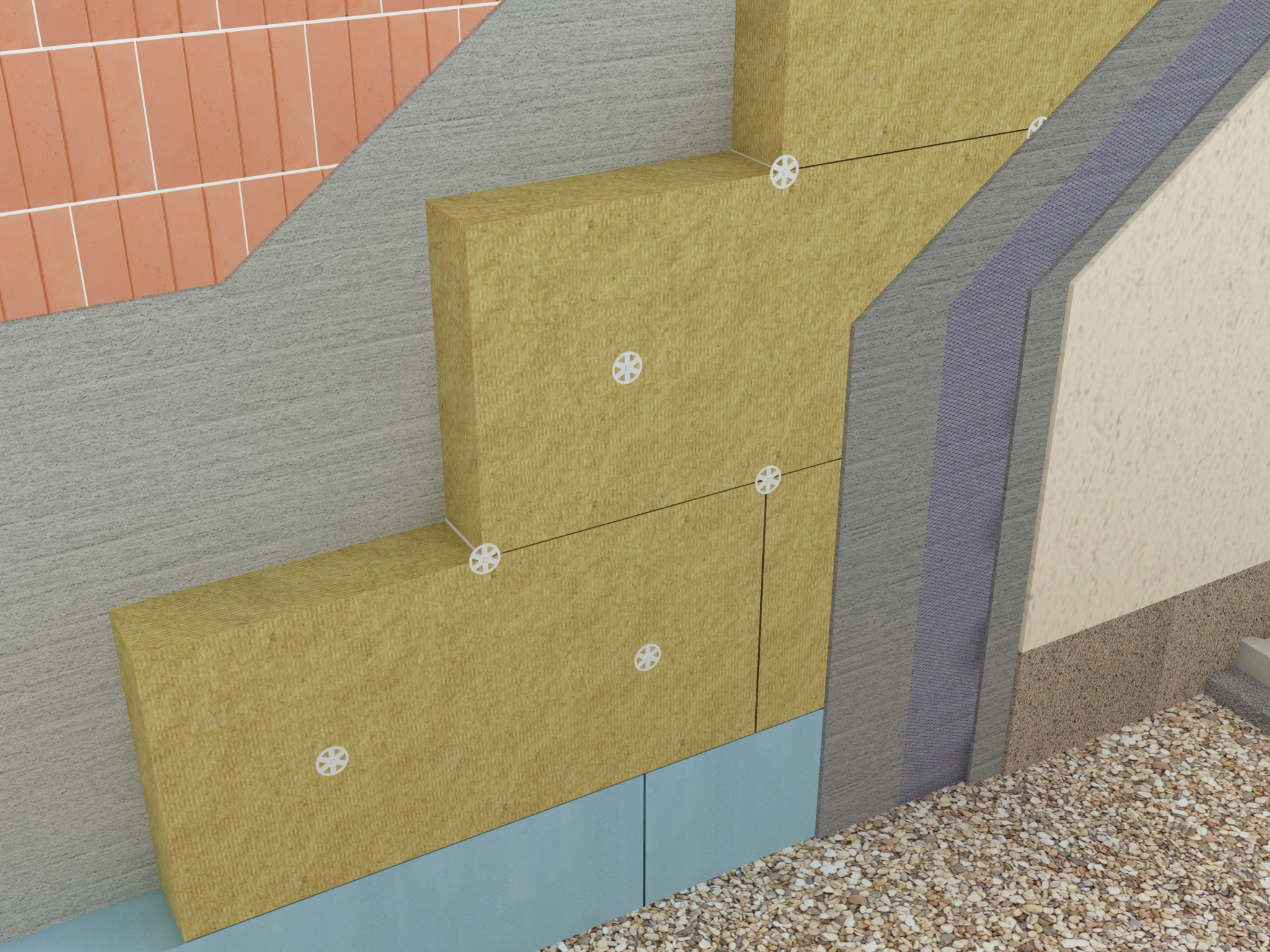
The use of stone wool in the structure of the facade wall of the building is particularly advantageous, as it provides adequate acoustic and fire protection in addition to thermal insulation. Since the material is fire-resistant and its melting point is above 1000 °C, it prevents the spread of fire and protects other structures of the building.
Thanks to its soundproofing properties, street noises remain outside, and a quiet, calm environment can be ensured inside the building.
Pitched roof thermal insulation
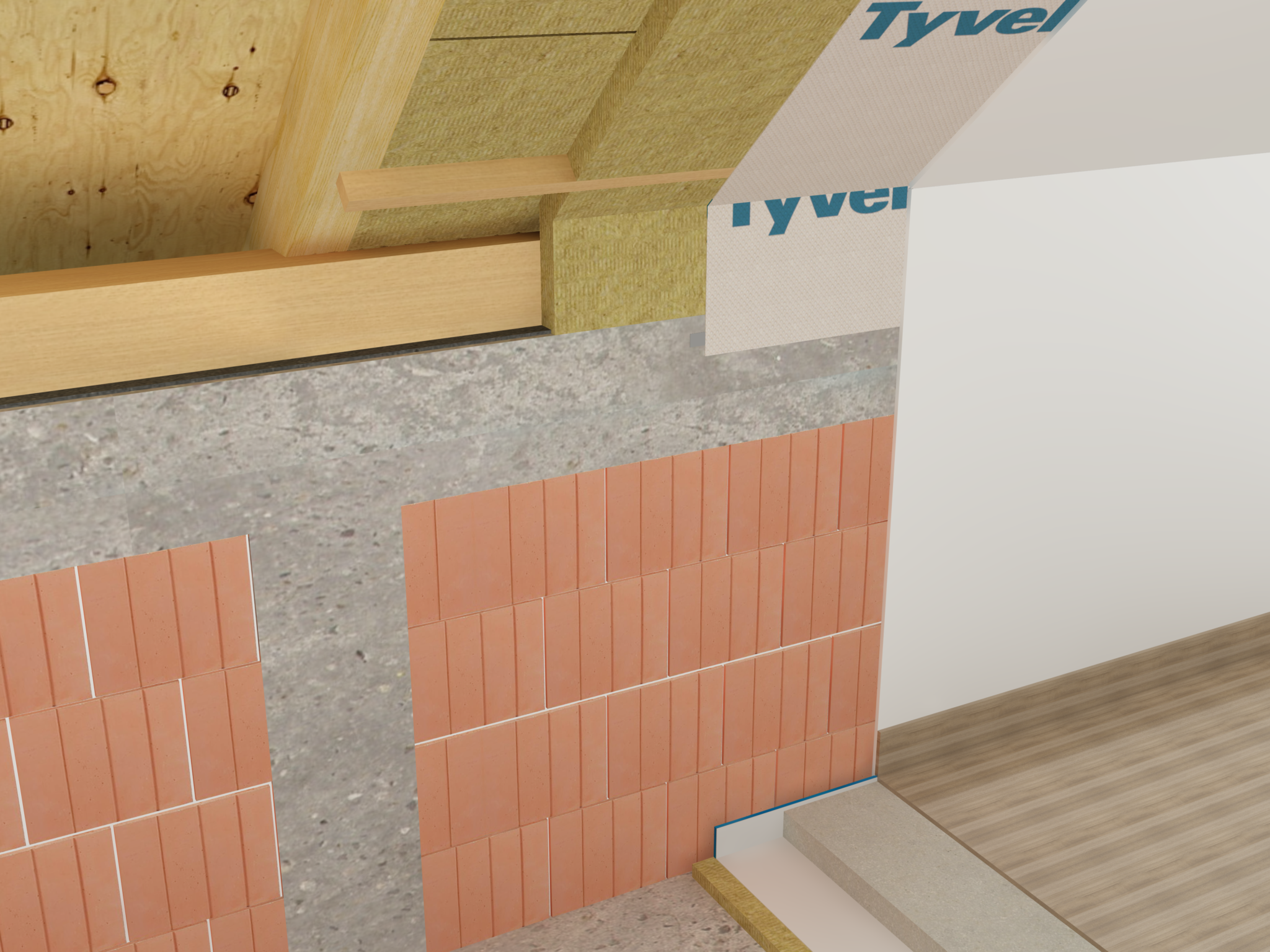
Using the attic for a living space leads to the need for thermal insulation, because the most common wooden pitched roofs do not have heat storage mass due to their light-weigth structure, so they easily heat up and cool down in winter.
Partition wall sound insulation
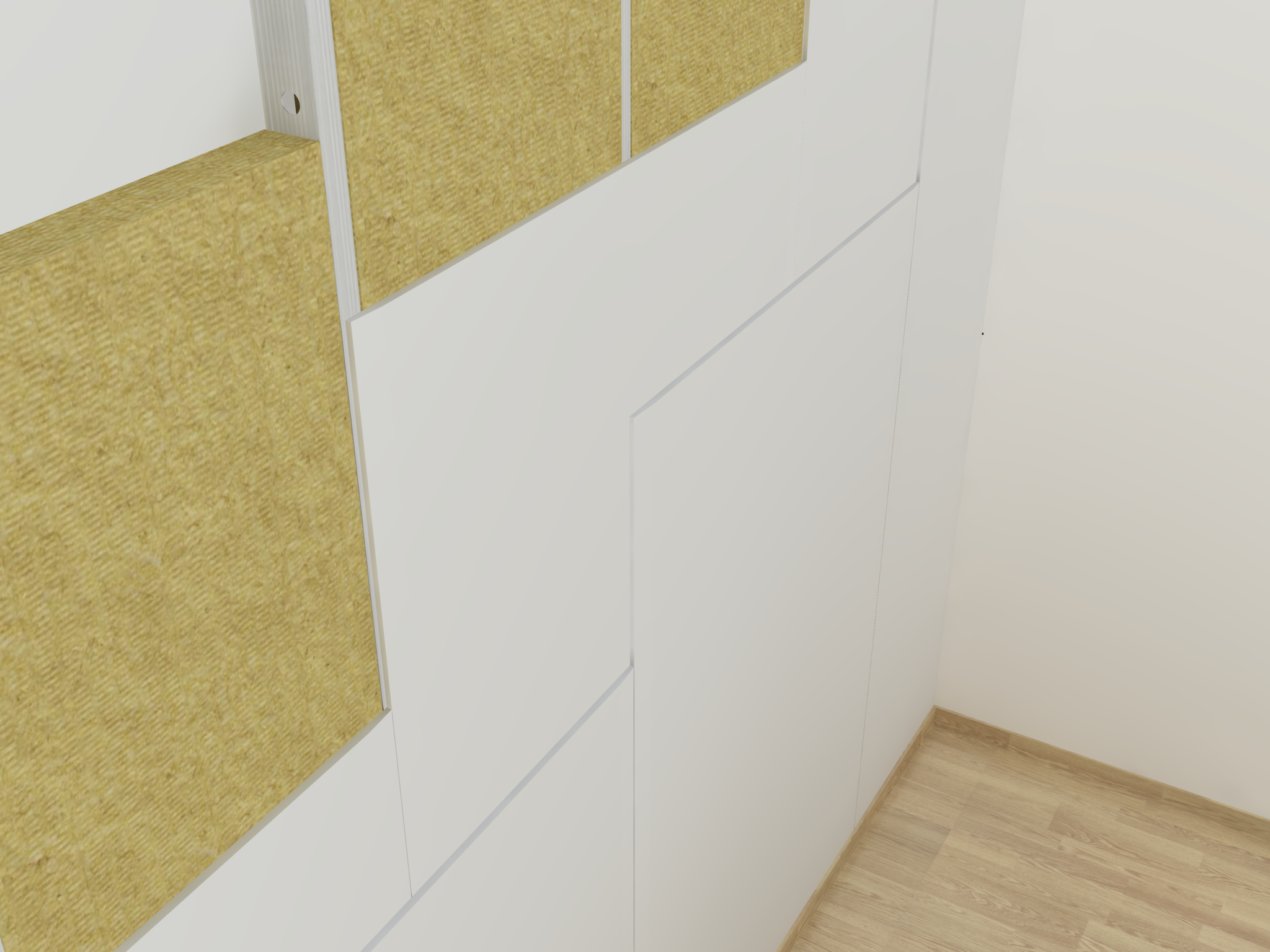
In the case of partition walls, RAVATHERM SW stone wool thermal insulation is needed primarily because of its acoustic properties. Most of the gypsum partition walls only meet the soundoroofing requirements between rooms by containing mineral wool inside.
Practice shows that acoustic insulation is also necessary for a partition wall between two rooms under normal conditions, but if there are loud activities taking place in the room, furthermore in the case of concert halls, insulation with greater sound absorption capacity is required. This can be achieved perfectly by RAVATHERM SW stone wool boards of suitable thickness built into the gypsum partition wall.
The most important element of professional construction is that the insulating boards are fit together perfectly and that there are no gaps between the boards.
Step sound insulation
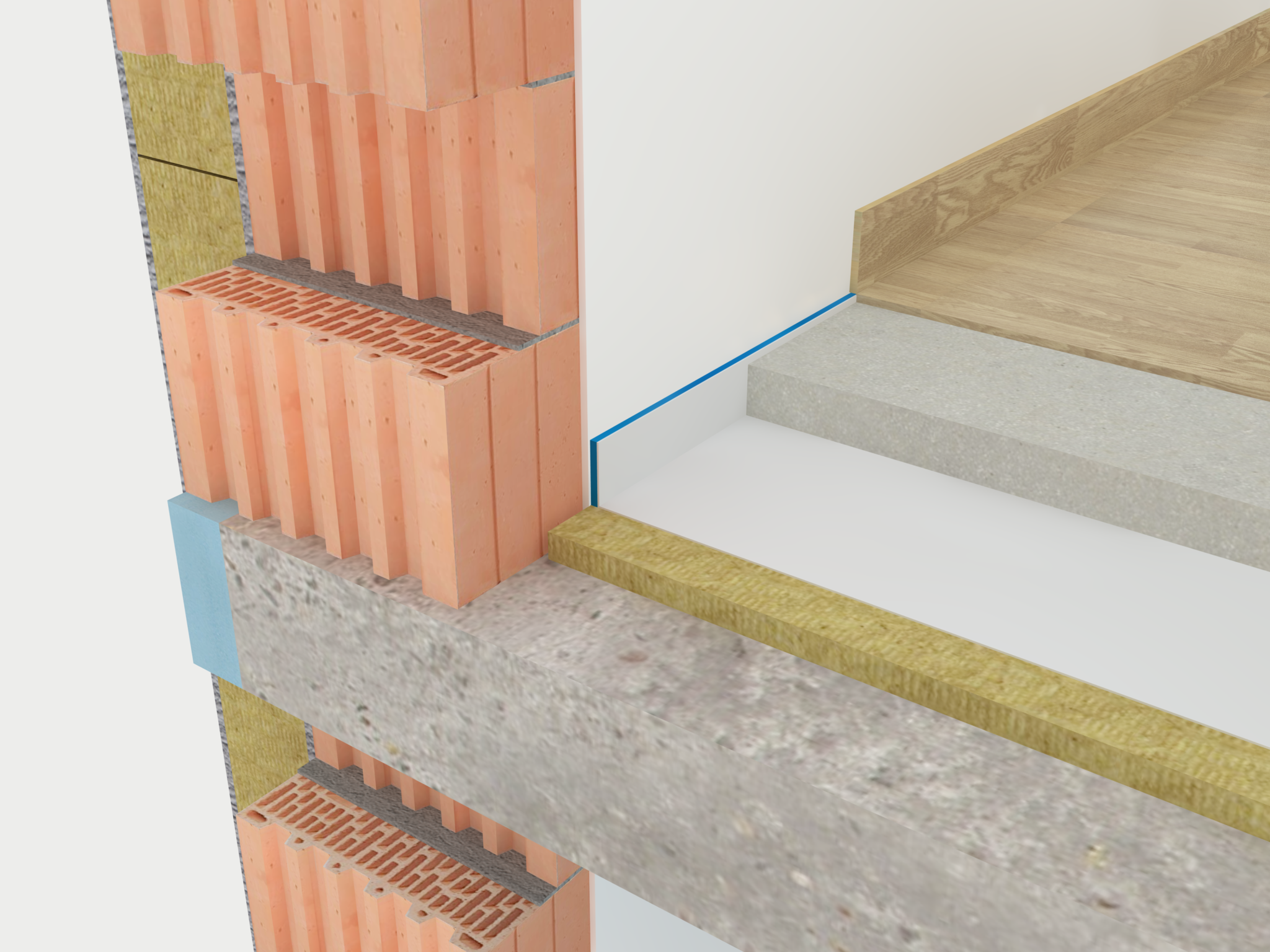
Sound insulation of the slabs between the building levels is very important, as it is necessary to prevent noise from spreading to the supporting structures of the building, and thus to the rooms on the different levels of the building. If there is no soundproofing on the floor, the sound of footsteps and furniture being moved can be disturbing for other residents.
Thanks to the flexible behavior of RAVATERM SW mineral wool boards, they effectively dampen knocking sounds and thus significantly contribute to the undisturbed tranquility of the apartment.



